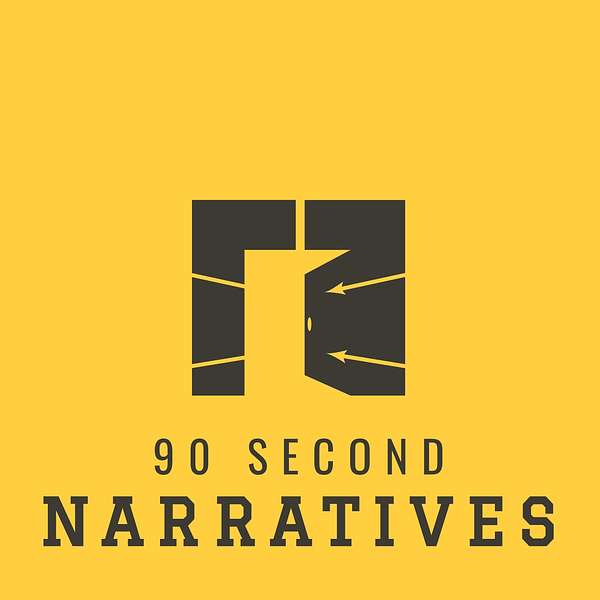
90 Second Narratives
90 Second Narratives
Intellectuals in Hindustan
“Muhammad Qasim Firishta was a physician, a diplomat and an intellectual. Born around 1570 CE and died sometimes after 1620 CE in the Deccan, contemporary India, he was known for his way around libraries and around circles of power…”
So begins today’s story from Dr. Manan Ahmed Asif.
For further reading:
The Loss of Hindustan: The Invention of India by Manan Ahmed Asif (Harvard University Press, 2020)
Episode transcript:
https://skymichaeljohnston.com/90secnarratives/
90 Second Narratives
Season 7: “Community”
Episode 1: “Intellectuals in Hindustan”
Sky Michael Johnston:
Hello and welcome to Season 7 of 90 Second Narratives! I’m Sky Michael Johnston the host and creator of 90 Second Narratives. I’m very excited to introduce today’s storyteller, Dr. Manan Ahmed Asif, an Associate Professor in the Department of History at Columbia University. Here he is with the story, “Intellectuals in Hindustan.”
Manan Ahmed Asif:
Muhammad Qasim Firishta was a physician, a diplomat and an intellectual. Born around 1570 CE and died sometimes after 1620 CE in the Deccan, contemporary India, he was known for his way around libraries and around circles of power. We know him from a monumental history he wrote that he titled “Nauras-nama” (The Book of New-ness) but which became influential under the title Tarikh-e Firishta (the History by Firishta). This book of around 1000 folio pages, written in a very accessible style of Persian with Hindavi and Deccani words, was commissioned by the ruler of Bijapur, Ibrahim ‘Adil Shah II. Firishta describes in his book that he was part of a wedding party with a different ruler and was taken prisoner and escaped after much troubles, eventually to find himself at a court, where the King spoke and wrote the most beautiful Persian, the most excellent Daccani, the most exquisite Arabic and the most learned Sanskrit. Firishta, awed by the learned ruler, requests a commission and Ibrahim ‘Adil Shah II gifts him a Persian history of saints “Razwatul Safa” copied in his own hands, and says that such a single-volume history of all of Hindustan needs to be written. This is the book that Firishta goes on to write and title “Naurasnama”. The book is full of incredible stories, ethics of history writing, and a glimpse of the social and cultural milieu of seventeenth century subcontinent, at the precipice of European colonization. My favorite are the brief accounts of Firishta traveling from library to library, archive to archive, in order to research his own work (this he had to do while fulfilling his so-called day job as a diplomat). I always find that these stories remind me of the ways in which a contemporary academic has to apply for grants and steal some precious few days in an archive. Firishta’s history is a wonderful glimpse into an intellectual world of precolonial subcontinent that I urge you all to seek out.
Sky Michael Johnston:
To learn more about the history—track with me here—the history of the history of Hindustan please read Dr. Manan Ahmed Asif’s remarkable book, The Loss of Hindustan: The Invention of India. It was published in 2020 by Harvard University Press.
Thank you for listening 90 Second Narratives today. Please join me every Monday for this whole new season of “little stories with BIG historical significance.”